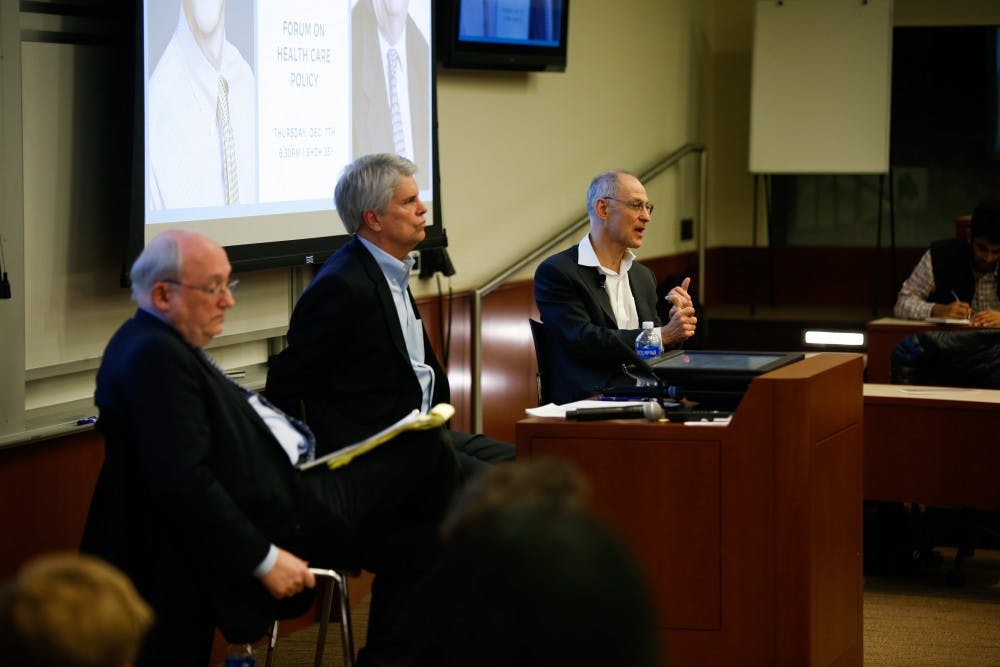Despite the GOP’s failure to pass its health care bill in Congress this summer, the Trump administration has continued to make efforts to “repeal and replace” the Affordable Care Act. This effort has sparked conversations about health care reform throughout the nation and on Penn's campus.
Furthering this debate, two scholars with differing stances on the policy spoke to the Penn community on Dec. 7: Penn Vice Provost for Global Initiatives and Chair of the Department of Medical Ethics & Health Policy Ezekiel Emanuel, who worked on the ACA as an advisor to the Obama administration, and American Enterprise Institute fellow Thomas Miller, who co-wrote the 2011 book, “Why Obamacare is Wrong for America.”
The event was hosted by AEI Council at Penn, Penn Government & Politics Association, the Wharton Public Policy Initiative student group, and the Wharton Undergraduate Healthcare Club.
While the two mainly discussed health care reform, they also spoke about the partisan divide in today’s political climate.
Emanuel said that regardless of the metrics, the ACA was a “huge success” in expanding coverage, reducing health care expenditure, and improving quality of health care. He argued that the Republican-majority Congress has refused to improve problems with the law.
Miller said that while the Republican attempt to replace the ACA earlier this year offered a “consequential critique” of the system, the party lacked the ability to provide an alternative approach. He added that a major overhaul of the health care program would take time, but the Trump administration could alter parts of the policy in upcoming years.
“What’s going on right now in the course of the tax reform is the repeal of the individual mandate,” Miller said. “In a practical sense, this is an opportunistic move to sell off a declining asset and add a source of revenue to the national budget.”

RELATED:
These Penn graduates are working to provide health care for Philadelphia's homeless
A year after Penn, this Nursing graduate has launched a startup to treat patients in their homes
Discussing broader ways to improve public health, Emanuel emphasized the need to incorporate more social services, including expanded early childhood preventative care, into the existing health care system.
Miller argued such services shouldn’t be “medicalized,” and instead should be left as decentralized initiatives, adding that patients should weigh the value of such care against costs.
Looking to the future of health care in America, Emanuel said there are long-term changes to be made, such as cutting health care costs by reducing “unnecessary services” and lowering drug prices.
“Overall in the United States, though, there is a lot of innovation happening, and I think by 2030, we are going to have a substantially better health care system,” Emanuel said.

Both scholars agreed that a bipartisan effort to redesign health care policy is unlikely in the near future.
College and Wharton sophomore and AEI Council member Max Grove said his group hosted the event so students could hear both conservative and liberal perspectives on health care policy.
“It was great to see the students engaged and to see the discussion get heated at times,” he said. “Overall, I think the event promoted a positive view of ‘learning’ on campus.”
College and Wharton freshman Sima Parekh said that while the two scholars held contrasting opinions on what health care in the future should look like, they agreed on many points.
“They also agreed that the current political state isn’t under adequate leadership to improve anything,” Parekh added. “They both seemed to be waiting for 2020 to see real actions.”



